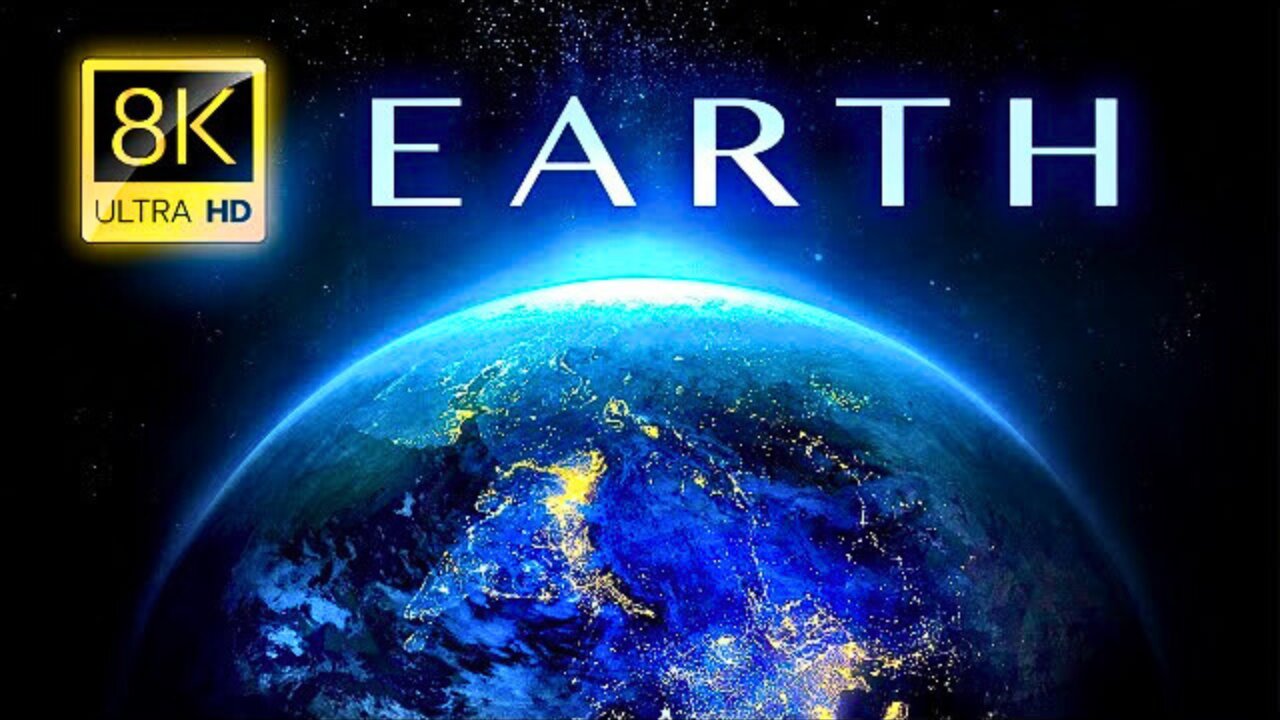Premium Only Content

EARTH in 8K ULTRA HD - Tour Through the Planet Earth - Best Places and Animals Relaxing Music 8K TV
#8K #EARTH #PLANET
Despite its name, Earth may be the only planet in our solar system that has oceans. It is the fifth-largest planet in the solar system and perhaps the only one that harbors life.
The Earth's seas and oceans, which cover 70% of its surface, are home to a large amount of life. With an average depth of 4 km, they account for 97% of the water on the planet. In addition, they feature some impressive landforms: the most extensive mountain range, the Mid-Oceanic Ridge, is deep under the sea. Four times as long as the Andes, the Rocky Mountains, and the Himalayas arranged in a row, it stretches 65,000 km across the Arctic and the Atlantic.
A study carried out jointly by the Universities of Münster, Cambridge, and the Zurich Technique showed that the age of the planet is between 4,400 million and 4,510 million years. So far, five mass extinctions have been recorded on the planet. The first occurred 440 million years ago and the last 65 million years ago. Michael Rampino, an Earth science expert at New York University, argues that it takes about 30 million years for the Solar System to cross the plane of the Milky Way. The presence of the system could be one of the reasons why comets' orbits are destabilized, launching them towards the planet. To this, he adds a possibility that is little studied today: dark matter.
8.7 million species, a single planet. The ecosystems that we depend on, as humans, to survive are made up of around 8.7 million plant and animal species. At least this is confirmed by a study by the University of Hawaii (United States) carried out in 2011, which is said to be the most accurate to date. Of these, we only know 1.3 million. Unfortunately, WWF warns with its Living Planet report that, since the 70s of the last century, only the world population of vertebrates has been reduced by 60% due to global warming, the destruction of ecosystems, and the crisis of biodiversity caused by human action. It is in our power to care for and protect (and even discover) all those species that make our planet an (almost) inexhaustible source of life.
-
 15:21
15:21
Degenerate Jay
15 hours ago $7.55 earnedThe Mystery Of Silent Hill 2's Strange Photos Has Finally Been Solved
36.4K9 -
 9:47
9:47
Cooking with Gruel
19 hours agoMastering Potato Gratin
20.7K15 -
 8:34
8:34
GBGunsRumble
14 hours agoGBGuns Range Report 24NOV24
15.4K4 -
 2:04:09
2:04:09
Nerdrotic
13 hours ago $87.98 earnedNew Peruvian Megalithic Site Discovery w/ Michael Collins | Forbidden Frontier #083
184K21 -
 6:40:53
6:40:53
Fresh and Fit
14 hours agoMyron TRIGGERED Rubi Rose, And Debating Cry Baby Blax On X Spaces!
180K125 -
 4:54:16
4:54:16
TheSaf3Hav3n
13 hours ago $27.32 earnedCALL OF DUTY: BLACK OPS 6 | A QUIET PLACE: THE ROAD AHEAD | #RumbleTakeOver
94.1K6 -
 4:05:35
4:05:35
TheNateVibez
12 hours agoOmni-🤖 - First Rumble Stream.🫡 - VETERAN
80K4 -
 2:59:26
2:59:26
Tundra Gaming Live
17 hours ago $5.78 earnedThe Worlds Okayest War Thunder Stream//FORMER F-16 MAINTAINER//77th FS//#rumblefam
49.2K2 -
 2:32:19
2:32:19
DemolitionDx
13 hours agoSunday night COD with friends.
135K7 -
 2:10:14
2:10:14
vivafrei
23 hours agoEp. 237: More Trump Cabinet Picks! MAHA or Slap in the Face? Canada on Fire! Go Woke Go Broke & MORE
262K331